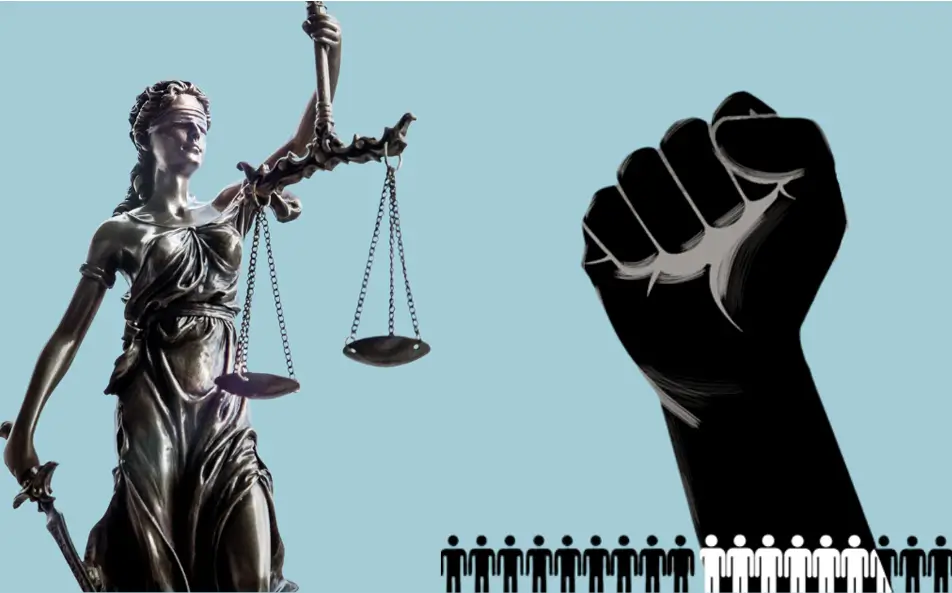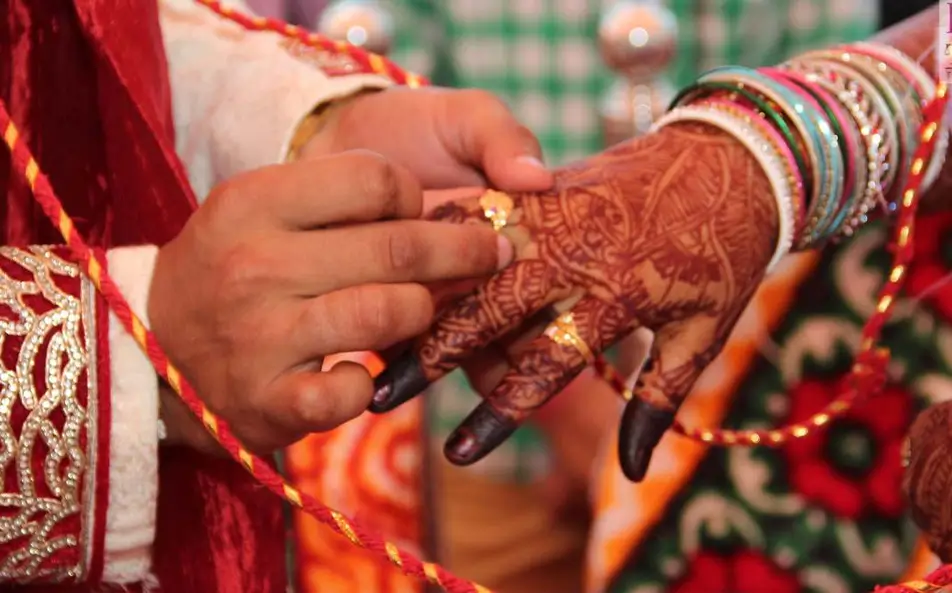
The United Indian

Corruption has been a pervasive issue in India for decades, undermining the nation's progress and tarnishing its reputation on the global stage. Despite numerous efforts to combat it, corruption persists, deeply entrenched in various facets of society. This blog aims to delve into the root causes of corruption in India, its manifestations in civil services, the role of political parties, its impact, legal frameworks, and what individuals can do to help curb this menace.
Root Causes of Corruption in India
There are various causes of Corruption in India including institutional weaknesses, bureaucratic red tape, low salaries, lack of transparency, and moral degradation. A historical legacy of colonial rule and feudal systems also contributed to the normalization of corruption in governance and public life.
- Institutional weaknesses : It is a significant contributor to corruption. Overlapping jurisdictions, cumbersome administrative procedures, and inadequate checks and balances create opportunities for corruption to flourish. Furthermore, the lack of transparency in decision-making processes and the absence of effective mechanisms for holding officials accountable exacerbate the problem.
- Bureaucratic red tape : This is another factor that fuels corruption. Complex and time-consuming procedures for obtaining permits, licenses, and approvals provide fertile ground for bribery. Citizens often find themselves at the mercy of corrupt officials who exploit their positions of power for personal gain.
- Low income : Low salaries & inadequate incentives for civil servants also contribute to corruption in India. Many public servants, especially those in lower ranks, struggle to make ends meet on meager salaries. This financial strain can tempt them to engage in corrupt practices as a means of supplementing their income.
- Cultural factors : In many parts of Indian society, bribery and nepotism are normalized and even expected behaviors. This normalization of corruption makes it easier for individuals to justify engaging in corrupt practices.
Corruption in Civil Services
Civil services, intended as pillars of governance, often become breeding grounds for corruption. Bureaucrats wield significant power, making them susceptible to bribery and malpractice. Lack of accountability, complex bureaucratic procedures, and political interference exacerbate the issue, hampering efficient service delivery and fostering a culture of corruption.
Civil servants are often tasked with implementing government policies and delivering essential services to citizens. However, the discretionary powers vested in them provide ample opportunities for corruption. From issuing permits and licenses to approving development projects, civil servants hold sway over crucial decision-making processes that can be manipulated for personal gain.
The lack of accountability further compounds the problem. Civil servants are rarely held answerable for their actions, allowing corruption to go unchecked. In many cases, corrupt officials are shielded by bureaucratic immunity or political patronage, making it difficult to hold them accountable for their misdeeds.
Political interference is another factor that undermines the integrity of civil services, thus contributing to the problem of corruption in India. Politicians often exert pressure on bureaucrats to act in their favor, whether through coercion, bribery, or intimidation. This interference compromises the autonomy of civil servants and erodes public trust in the impartiality of government institutions.
Reasons Why Bribes are Easily Acceptable
Social norms, cultural practices, and a sense of helplessness contribute to the acceptance of bribes in India. In many cases, bribery is seen as a means to expedite processes or navigate bureaucratic hurdles. Poverty and inequality exacerbate the problem, as marginalized individuals may resort to bribery to access basic services denied to them due to systemic inefficiencies.
In India, bribery is often viewed as a necessary evil, a way to grease the wheels of bureaucracy and get things done in a timely manner. Many citizens feel powerless in the face of bureaucratic red tape and perceive bribery as the only viable option for obtaining essential services or resolving disputes.
Moreover, social norms and cultural practices often tacitly condone bribery. Gift-giving and hospitality are deeply ingrained in Indian culture, and these practices can easily blur the line between acceptable behavior and corruption. This normalization of bribery makes it easier for individuals to rationalize engaging in corrupt acts.
Poverty and inequality also play a significant role in driving corruption in India. For many marginalized communities, access to basic services such as healthcare, education, and housing is limited by systemic barriers and discrimination. In such circumstances, bribery may be the only means of accessing these essential services, further perpetuating a cycle of corruption and deprivation.
Role of Political Parties
Political parties play a crucial role in either perpetuating or mitigating corruption. Corruption often thrives in environments where political leaders prioritize personal gains over public welfare. Cronyism, nepotism, and patronage networks further entrench corruption within political systems. However, political will and institutional reforms can help counteract these negative influences.
Political parties wield significant influence over government policies and resource allocation, making them key players in the fight against the problem of corruption in India. However, all too often, political parties prioritize short-term electoral gains over long-term governance reforms, perpetuating a cycle of corruption and impunity.
Cronyism and nepotism are rampant in Indian politics, with influential politicians often using their positions of power to advance the interests of their family members, friends, and associates. This culture of favoritism undermines meritocracy and fosters a sense of entitlement among the political elite, further eroding public trust in democratic institutions.
Moreover, patronage networks and party financing practices often serve as conduits for corruption. Political parties rely heavily on donations from wealthy individuals and corporations to fund their election campaigns, creating opportunities for quid pro quo arrangements and backroom deals. This cozy relationship between money and politics undermines the integrity of the electoral process and perpetuates a culture of corruption.
Impact of Corruption in India :
Corruption in India has far-reaching consequences, undermining economic development, eroding public trust in institutions, and perpetuating social injustices. It distorts markets, stifles entrepreneurship, and deters foreign investment. Moreover, it exacerbates poverty by diverting resources meant for public welfare into the pockets of the corrupt elite.
Economically, corruption acts as a drag on growth and development, siphoning off valuable resources that could otherwise be invested in infrastructure, healthcare, and education. Inefficient allocation of resources and distorted market incentives hinder innovation and entrepreneurship, stifling economic dynamism and perpetuating a cycle of poverty and underdevelopment.
Moreover, corruption erodes public trust in government institutions and undermines the rule of law. When citizens perceive government officials as corrupt and self-serving, they are less likely to comply with laws and regulations, leading to widespread disillusionment and social unrest. In extreme cases of corruption in India, it can even threaten the stability of democratic institutions and pave the way for authoritarianism.
Furthermore, corruption exacerbates social inequalities by favoring the wealthy and well-connected at the expense of the marginalized and vulnerable. When access to basic services and opportunities is determined by one's ability to pay bribes or curry favor with the powerful, social mobility becomes increasingly elusive, perpetuating cycles of poverty and exclusion.
Legal and Regulatory Frameworks:
India has enacted several laws and established institutions to combat corruption, including the Prevention of Corruption Act, 1988, and the Central Vigilance Commission. However, implementation and enforcement remain major challenges. Strengthening these frameworks, ensuring swift justice, and promoting transparency are crucial in the fight against corruption.
The Prevention of Corruption Act, 1988, is the primary legal framework governing anti corruption laws in India. The act defines various offenses related to corruption, including bribery, abuse of power, and misappropriation of public funds. It also prescribes penalties for individuals found guilty of committing these offenses, including fines and imprisonment.
The Central Vigilance Commission (CVC) is responsible for overseeing the prevention and investigation of corruption in the central government. The commission acts as an apex vigilance body, providing guidance and oversight to government departments and agencies to ensure compliance with anti-corruption laws and regulations.
Despite these legal and regulatory mechanisms anti corruption laws in India, the issue remains widespread, underscoring the need for more robust enforcement and institutional reforms. Corruption cases often languish in the judicial system for years, leading to a pervasive sense of impunity among corrupt officials. Moreover, loopholes and weaknesses in existing laws allow corrupt individuals to evade prosecution and escape accountability.
How Individuals Can Help Curb Corruption in India:
Individuals play a vital role in combating corruption through their actions and advocacy. By refusing to participate in corrupt practices, reporting instances of bribery and malfeasance, and supporting ethical leaders and organizations, citizens can contribute to fostering a culture of integrity and accountability. Additionally, promoting transparency, demanding accountability from elected representatives, and actively participating in civic engagement can help curb corruption at grassroots levels.
One of the most effective ways individuals can combat corruption in India is by refusing to engage in corrupt practices themselves. By upholding ethical standards and refusing to pay bribes or engage in nepotism, individuals can set an example for others and help create a culture of integrity in their communities.
Furthermore, individuals can play an active role in holding government officials and institutions accountable for their actions. This includes reporting instances of corruption to the appropriate authorities, advocating for transparency and accountability measures, and participating in public forums and protests to demand reform.
Additionally, individuals can support organizations and initiatives that are working to combat corruption and promote good governance. This may involve volunteering time or resources, participating in awareness campaigns, or using social media to raise awareness about corruption issues and advocate for change.
Conclusion
The battle against corruption in India is complex and ongoing, requiring concerted efforts from all stakeholders – citizens, government, civil society, and the private sector. Addressing the root causes, reforming institutions, and fostering a culture of transparency and accountability are essential steps towards building a more just and equitable society. By working together, India can overcome the scourge of corruption and realize its full potential as a thriving democracy and economic powerhouse.
Read more in Government Sector
Jul 26, 2024
TUI Staff
Jul 18, 2024
TUI Staff
Jul 16, 2024
TUI Staff

Stay Tuned with The United Indian!
Our news blog is dedicated to sharing valuable and pertinent content for Indian citizens. Our blog news covering a wide range of categories including technology, environment, government & economy ensures that you stay informed about the topics that matter most. Follow The United Indian to never miss out on the latest trending news in India.
©The United Indian 2023

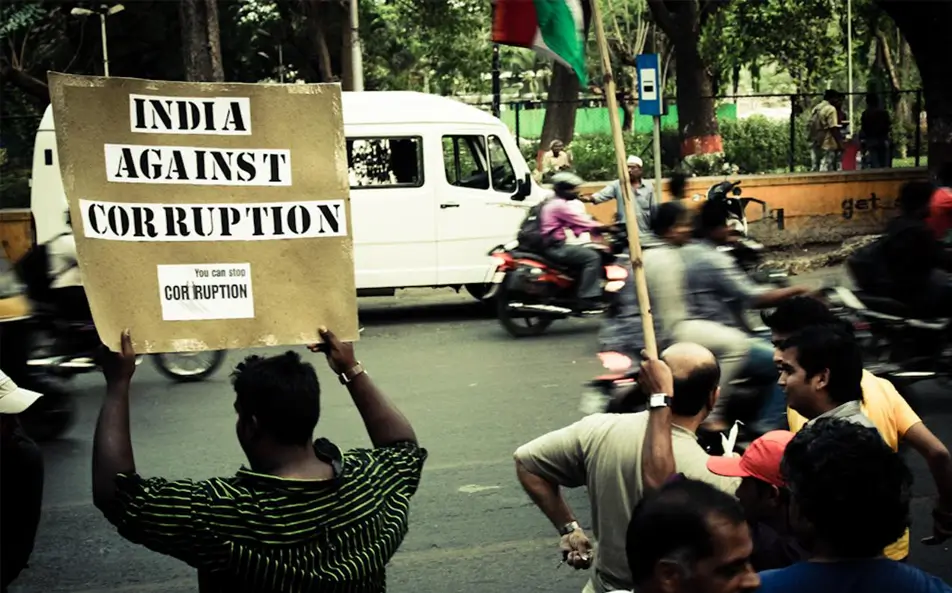





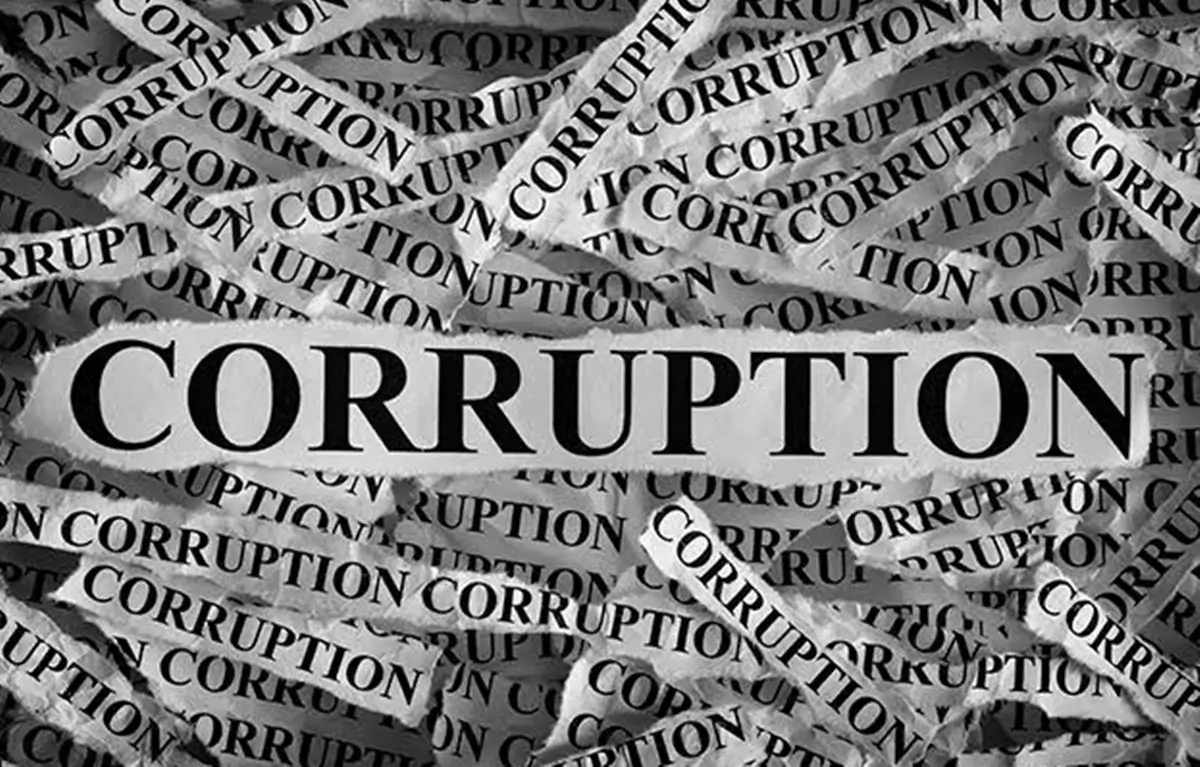
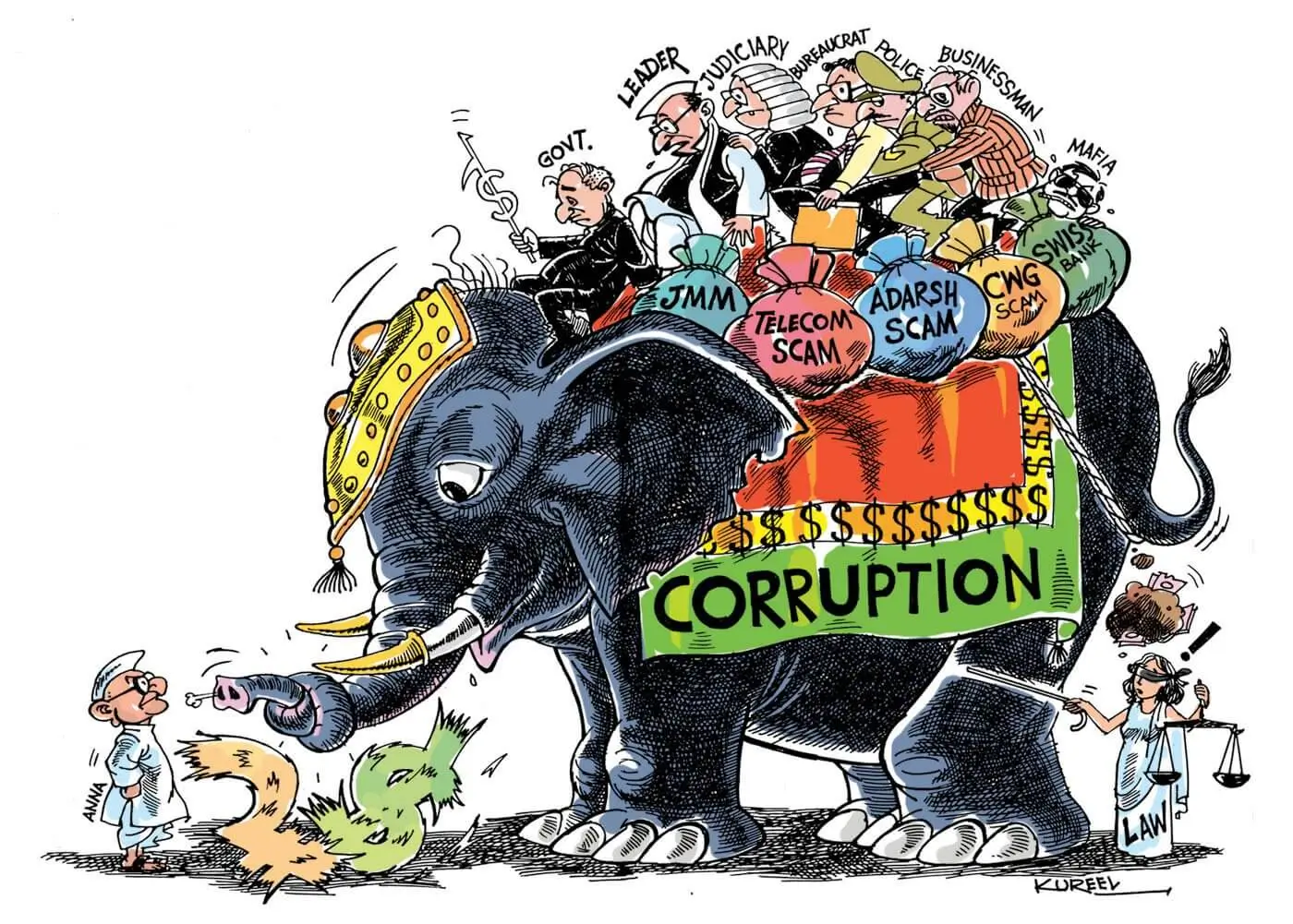

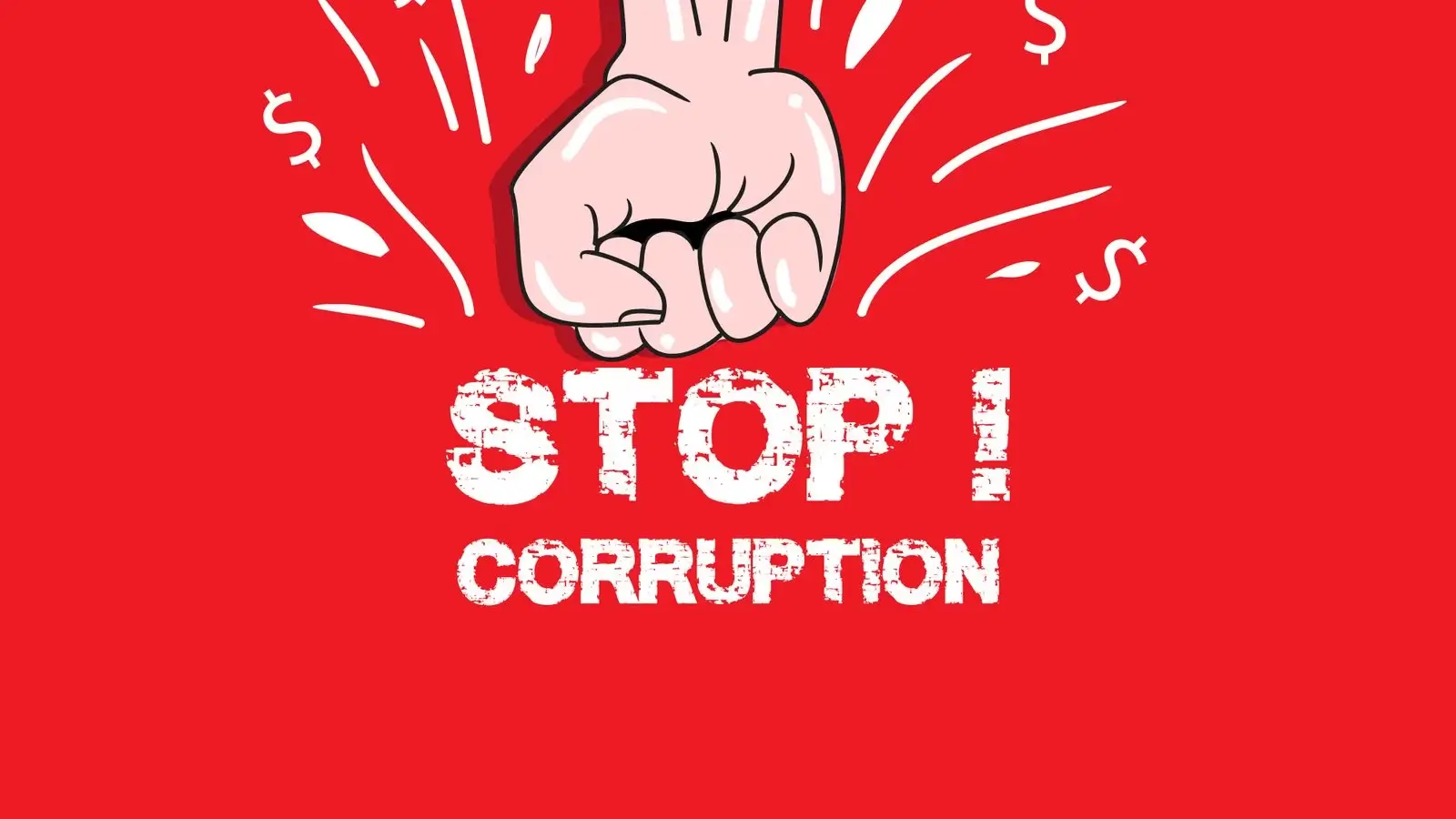
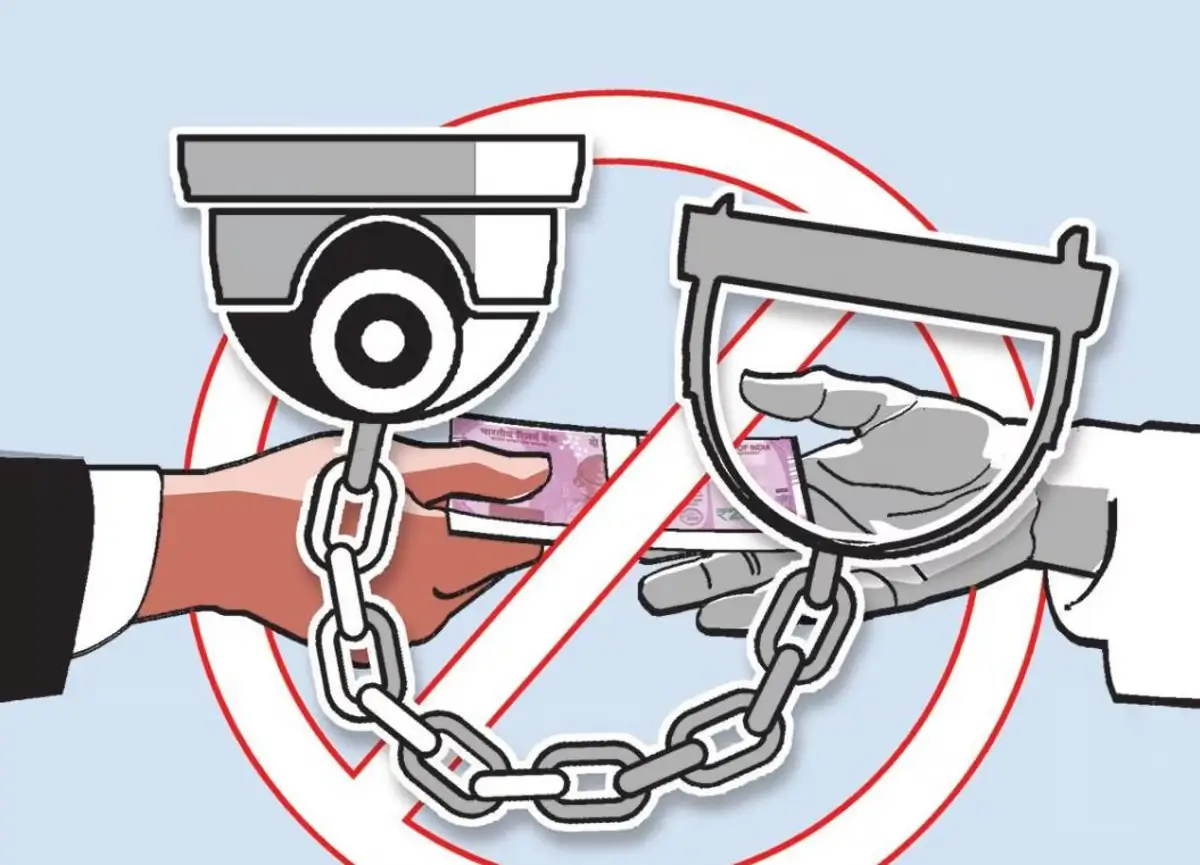
.webp)
